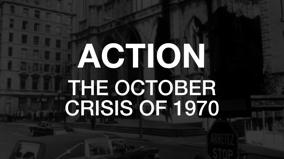New release
Coming
None
La liberté en colère
1994
1 h 13 min
Leaving soon
Documentaire sur quatre personnages, qui furent au début des années 70 les acteurs d'une période mouvementée d'affirmation nationale au Québec : Pierre Vallières, Charles Gagnon, Francis Simard et Robert Comeau. Regard sur leur engagement social et politique sur fond de séquences d'archives et de chansons de Plume Latraverse.

Details
Documentaire sur quatre personnages, qui furent au début des années 70 les acteurs d'une période mouvementée d'affirmation nationale au Québec : Pierre Vallières, Charles Gagnon, Francis Simard et Robert Comeau. Regard sur leur engagement social et politique sur fond de séquences d'archives et de chansons de Plume Latraverse.
-
directorJean-Daniel Lafond
-
scriptJean-Daniel Lafond
-
producerIolande Cadrin-Rossignol
-
photographyMartin Leclerc
-
animation cameraRaymond Dumas
-
soundJacques DrouinYves GendronEsther AugerSerge BeaucheminMarie-France Delagrave
-
editingBabalou Hamelin
-
sound editingMyriam Poirier
-
sound mixerJean-Pierre JoutelSerge Boivin
-
musicPlume Latraverse
-
participationPierre VallièresFrancis SimardCharles GagnonRobert ComeauPlume LatraverseMichel ChartrandLuc BélisleRobert LatendresseLaurier AlarieRené GagnonGaston Guy
Education
Ages 13 to 17
School subjects

















